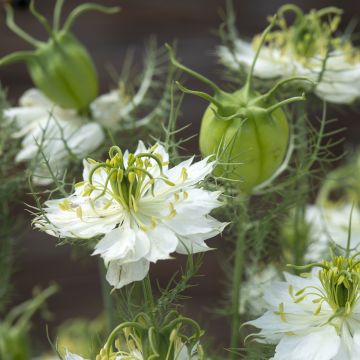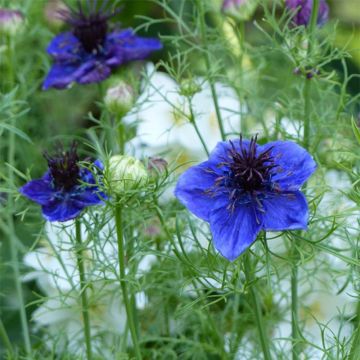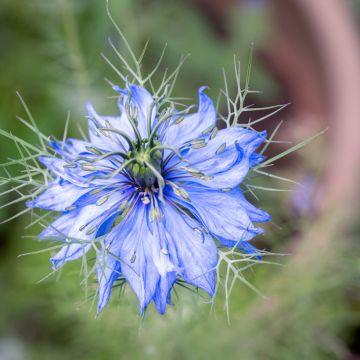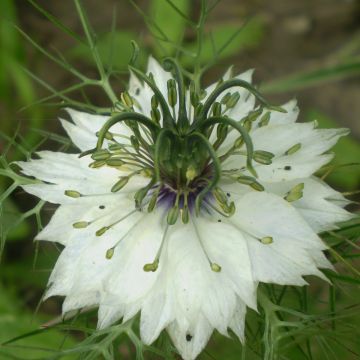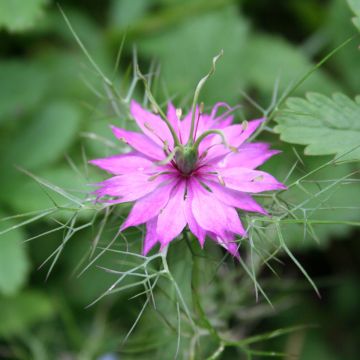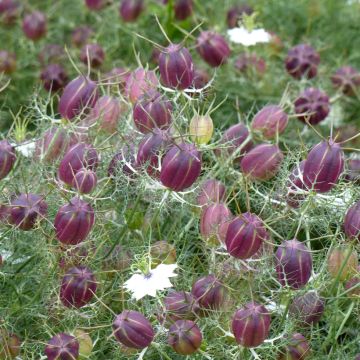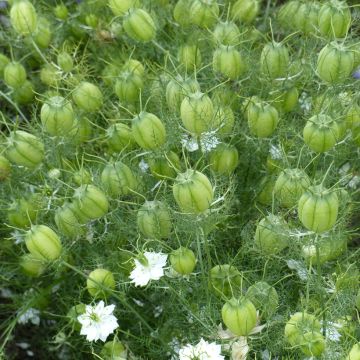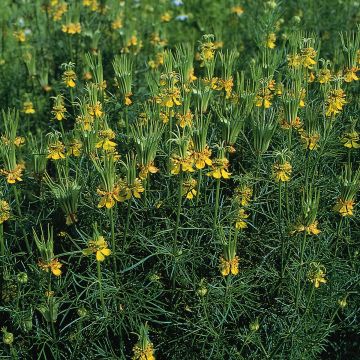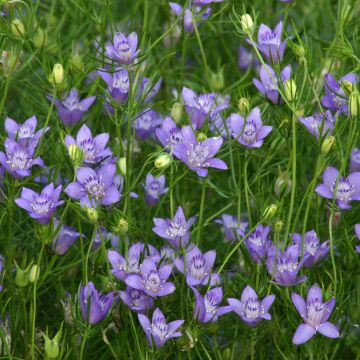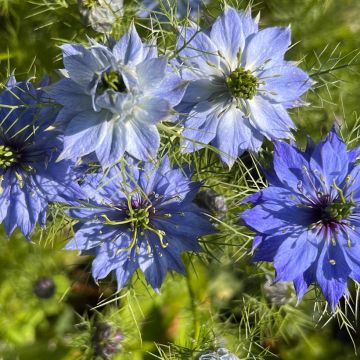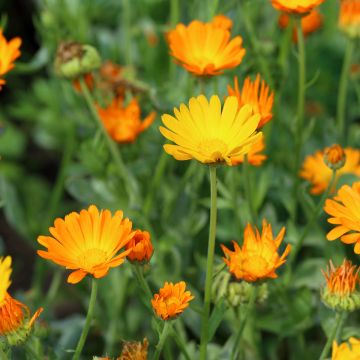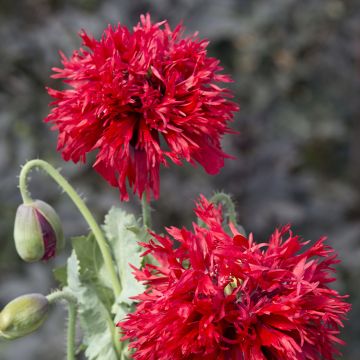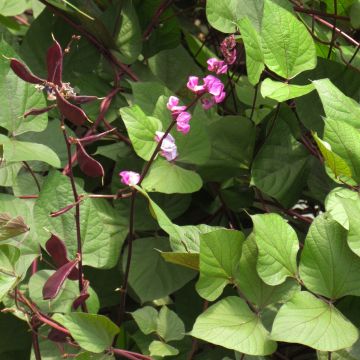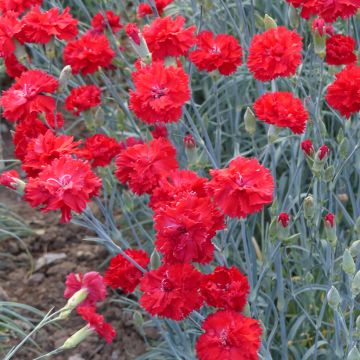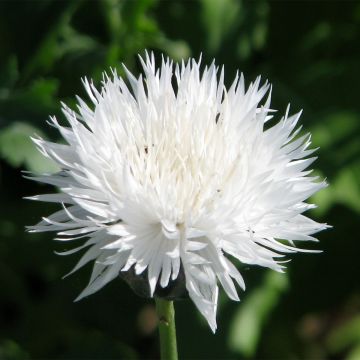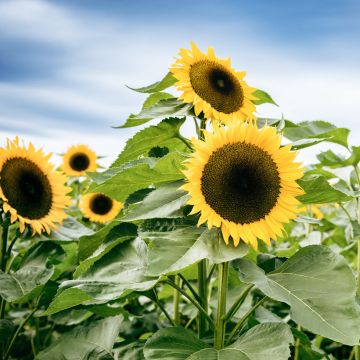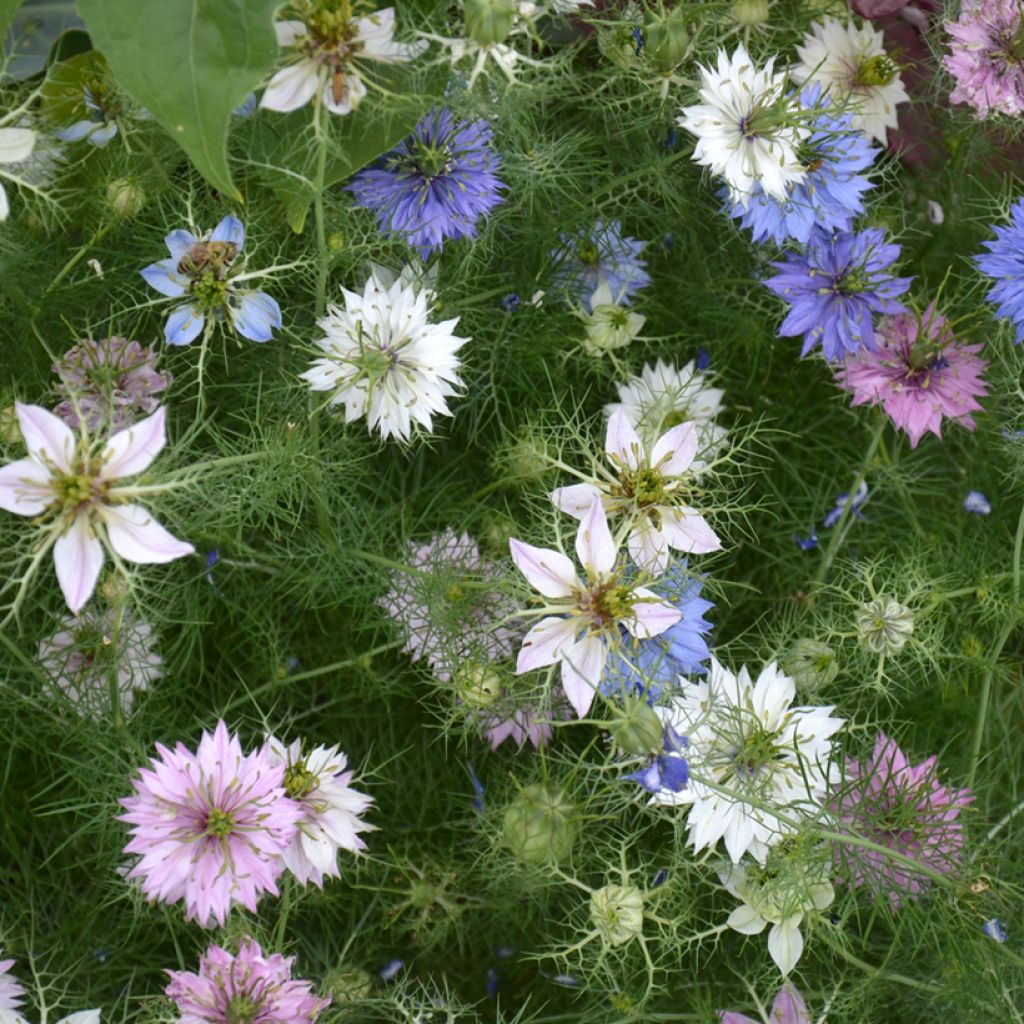

Nigella damascena Mix organic seeds - Love-in-a-mist, Devil-in-the-bush, Ragged lady
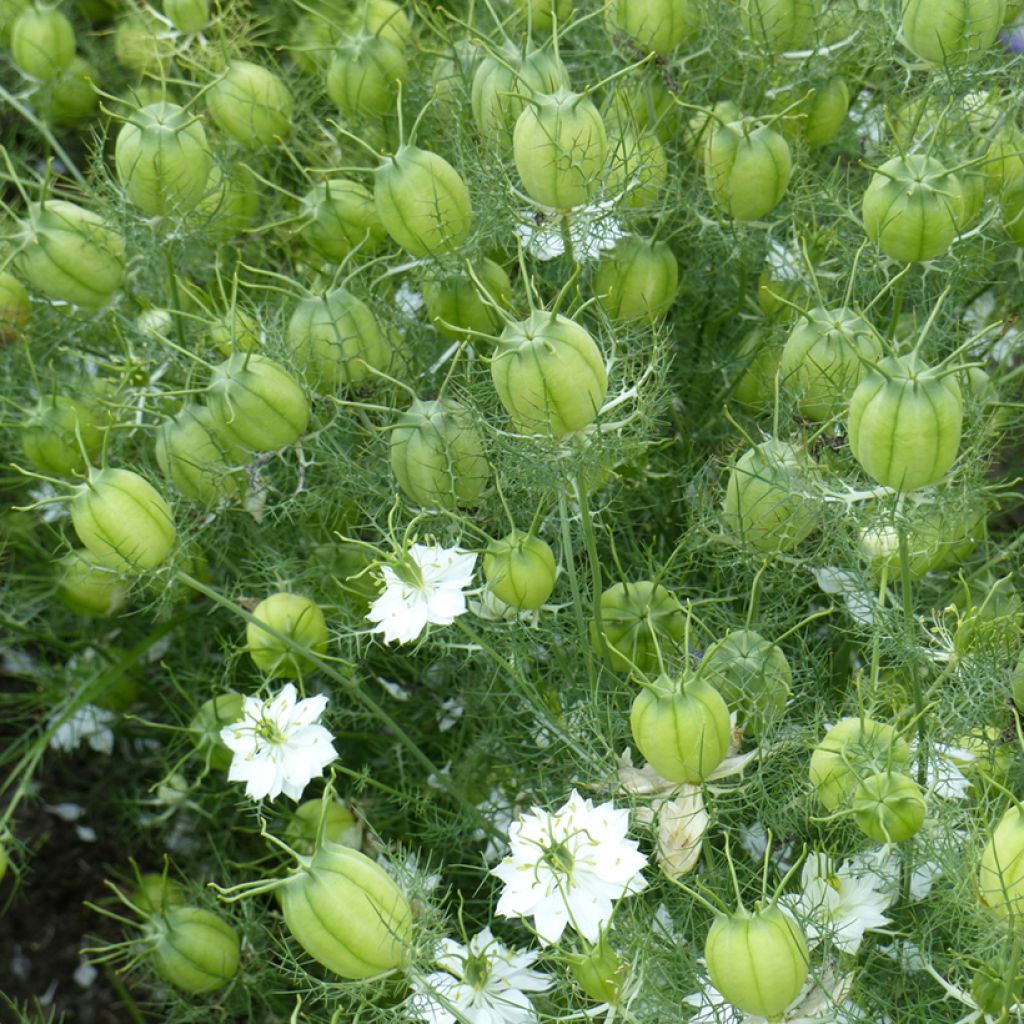

Nigella damascena Mix organic seeds - Love-in-a-mist, Devil-in-the-bush, Ragged lady
Nigella damascena Mix organic seeds - Love-in-a-mist, Devil-in-the-bush, Ragged lady
Nigella damascena Mix (en mélange)
Love-in-a-mist, Devil-in-the-bush, Ragged lady
Special offer!
Receive a €20 voucher for any order over €90 (excluding delivery costs, credit notes, and plastic-free options)!
1- Add your favorite plants to your cart.
2- Once you have reached €90, confirm your order (you can even choose the delivery date!).
3- As soon as your order is shipped, you will receive an email containing your voucher code, valid for 3 months (90 days).
Your voucher is unique and can only be used once, for any order with a minimum value of €20, excluding delivery costs.
Can be combined with other current offers, non-divisible and non-refundable.
Home or relay delivery (depending on size and destination)
Schedule delivery date,
and select date in basket
This plant carries a 6 months recovery warranty
More information
We guarantee the quality of our plants for a full growing cycle, and will replace at our expense any plant that fails to recover under normal climatic and planting conditions.
Would this plant suit my garden?
Set up your Plantfit profile →
Description
The Organic Nigella damascena Mix is a blend of organic seeds. It consists of flowers in white, light blue, soft pink, and purplish blue on the typical airy foliage of this beautiful annual. The delicate flowers then turn into unique seed heads, in the form of round and parchment-like capsules adorned with very fine "hairs". Sow this delightful selection in rockeries or sunny borders, without worrying about disturbing neighbouring plants. It is an excellent flower for cutting. Foliage, flowers, fruits, everything is decorative with this plant that is so easy to grow!
Nigella damascena is an annual plant of the Ranunculaceae family, originating from the Near East, growing in uncultivated, rocky lands, roadside edges, and the most barren soils. This very hardy and fast-growing plant overwinters as a seedling to form in spring a beautiful clump of feathery foliage, like that of fennel, 50 cm tall and 30 cm wide. The Organic Mix selection is a blend of intricate flowers, in pure colours, ranging from blue to pink, to purple. Flowering occurs from May to August, depending on the sowing date. These wonderful flowers with slender petals surrounded by a lace collar are nestled in the foliage. They measure about 2.5 cm in diameter and are followed by silky round capsules, pinkish-brown at maturity, containing a large number of small black seeds.
Traditionally found in cottage gardens, the Damascus nigella stands out for its ease of cultivation on all types of soils as long as they are well-drained. This plant fits into many contexts, such as natural gardens, rockeries, or perennial borders, where it visually lightens up the blooms. It forms a charming duo with bush roses. Capable of quickly colonising empty spaces, the Damascus nigella effortlessly creates a rustic and vividly colourful setting. It blends wonderfully with other plants such as phacelias, Cerinthe major, sainfoin, Californian poppies, perennial flax or wild chicory, bringing a touch of naturalness and spontaneity to any garden.
Report an error about the product description
Flowering
Foliage
Plant habit
Botanical data
Nigella
damascena
Mix (en mélange)
Ranunculaceae
Love-in-a-mist, Devil-in-the-bush, Ragged lady
Cultivar or hybrid
Other Nigella -Love-in-a-mist seeds
View all →Planting and care
Sowing the organic Nigella Mix is child's play. You can choose to sow in spring or late summer, as the young plants are hardy and survive the winter without damage. Sow the seeds outside, directly in the ground. Prepare the soil well to loosen and lighten it before sowing. Sow in rows spaced 30cm apart, at a depth of 6mm. You can create beautiful flowering pots for spring by sowing the seeds in a cold greenhouse or conservatory in late summer and autumn. Thin out the sowing to leave only one plant every 20cm. Love-in-a-mist enjoy the sun and tolerate drought well, as they adapt their life cycle to climatic conditions, flowering early in dry summer regions, and throughout the summer in cooler climates. These plants self-seed very easily in the garden, but not always reliably.
Sowing period
Intended location
This item has not been reviewed yet - be the first to leave a review about it.
Similar products
Haven't found what you were looking for?
Hardiness is the lowest winter temperature a plant can endure without suffering serious damage or even dying. However, hardiness is affected by location (a sheltered area, such as a patio), protection (winter cover) and soil type (hardiness is improved by well-drained soil).

Photo Sharing Terms & Conditions
In order to encourage gardeners to interact and share their experiences, Promesse de fleurs offers various media enabling content to be uploaded onto its Site - in particular via the ‘Photo sharing’ module.
The User agrees to refrain from:
- Posting any content that is illegal, prejudicial, insulting, racist, inciteful to hatred, revisionist, contrary to public decency, that infringes on privacy or on the privacy rights of third parties, in particular the publicity rights of persons and goods, intellectual property rights, or the right to privacy.
- Submitting content on behalf of a third party;
- Impersonate the identity of a third party and/or publish any personal information about a third party;
In general, the User undertakes to refrain from any unethical behaviour.
All Content (in particular text, comments, files, images, photos, videos, creative works, etc.), which may be subject to property or intellectual property rights, image or other private rights, shall remain the property of the User, subject to the limited rights granted by the terms of the licence granted by Promesse de fleurs as stated below. Users are at liberty to publish or not to publish such Content on the Site, notably via the ‘Photo Sharing’ facility, and accept that this Content shall be made public and freely accessible, notably on the Internet.
Users further acknowledge, undertake to have ,and guarantee that they hold all necessary rights and permissions to publish such material on the Site, in particular with regard to the legislation in force pertaining to any privacy, property, intellectual property, image, or contractual rights, or rights of any other nature. By publishing such Content on the Site, Users acknowledge accepting full liability as publishers of the Content within the meaning of the law, and grant Promesse de fleurs, free of charge, an inclusive, worldwide licence for the said Content for the entire duration of its publication, including all reproduction, representation, up/downloading, displaying, performing, transmission, and storage rights.
Users also grant permission for their name to be linked to the Content and accept that this link may not always be made available.
By engaging in posting material, Users consent to their Content becoming automatically accessible on the Internet, in particular on other sites and/or blogs and/or web pages of the Promesse de fleurs site, including in particular social pages and the Promesse de fleurs catalogue.
Users may secure the removal of entrusted content free of charge by issuing a simple request via our contact form.
The flowering period indicated on our website applies to countries and regions located in USDA zone 8 (France, the United Kingdom, Ireland, the Netherlands, etc.)
It will vary according to where you live:
- In zones 9 to 10 (Italy, Spain, Greece, etc.), flowering will occur about 2 to 4 weeks earlier.
- In zones 6 to 7 (Germany, Poland, Slovenia, and lower mountainous regions), flowering will be delayed by 2 to 3 weeks.
- In zone 5 (Central Europe, Scandinavia), blooming will be delayed by 3 to 5 weeks.
In temperate climates, pruning of spring-flowering shrubs (forsythia, spireas, etc.) should be done just after flowering.
Pruning of summer-flowering shrubs (Indian Lilac, Perovskia, etc.) can be done in winter or spring.
In cold regions as well as with frost-sensitive plants, avoid pruning too early when severe frosts may still occur.
The planting period indicated on our website applies to countries and regions located in USDA zone 8 (France, United Kingdom, Ireland, Netherlands).
It will vary according to where you live:
- In Mediterranean zones (Marseille, Madrid, Milan, etc.), autumn and winter are the best planting periods.
- In continental zones (Strasbourg, Munich, Vienna, etc.), delay planting by 2 to 3 weeks in spring and bring it forward by 2 to 4 weeks in autumn.
- In mountainous regions (the Alps, Pyrenees, Carpathians, etc.), it is best to plant in late spring (May-June) or late summer (August-September).
The harvesting period indicated on our website applies to countries and regions in USDA zone 8 (France, England, Ireland, the Netherlands).
In colder areas (Scandinavia, Poland, Austria...) fruit and vegetable harvests are likely to be delayed by 3-4 weeks.
In warmer areas (Italy, Spain, Greece, etc.), harvesting will probably take place earlier, depending on weather conditions.
The sowing periods indicated on our website apply to countries and regions within USDA Zone 8 (France, UK, Ireland, Netherlands).
In colder areas (Scandinavia, Poland, Austria...), delay any outdoor sowing by 3-4 weeks, or sow under glass.
In warmer climes (Italy, Spain, Greece, etc.), bring outdoor sowing forward by a few weeks.






























